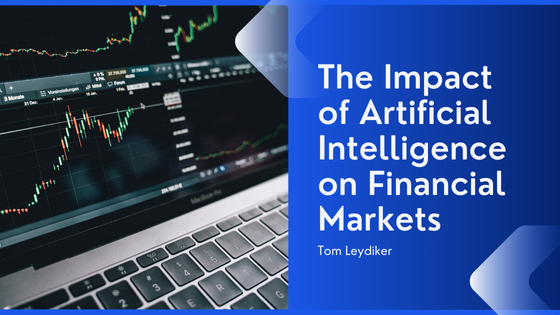The integration of AI has transformed financial markets, enhancing efficiency and reshaping strategies. This technological evolution is not just a trend but a fundamental change in how financial data is analyzed and how decisions are made in the world of finance.
Enhanced Market Efficiency
AI contributes significantly to market efficiency through advanced algorithms and machine learning techniques. These tools quickly analyze large amounts of data, identifying patterns and trends to inform investment decisions. High-frequency trading (HFT) algorithms, which rely on AI, execute orders in milliseconds, capitalizing on small price changes to generate profit. This rapid analysis and execution improve liquidity and can lead to more stable markets.
Risk Management and Prediction
One of the most valuable applications of AI in financial markets is in risk management. AI systems can predict market trends and volatility with a high degree of accuracy by processing historical and real-time data. This capability allows investors and institutions to make more informed decisions, potentially reducing losses in turbulent market conditions. Moreover, AI-driven models help in credit risk assessment, enabling lenders to evaluate borrower risk more accurately and efficiently.
Personalized Banking and Investment Services
AI has also paved the way for personalized financial services. Using artificial intelligence, robo-advisors can provide clients with tailored investment advice based on their goals, risk tolerance, and timeframe for investing. These platforms have democratized access to investment advice, previously available only to high-net-worth individuals through human advisors. Additionally, AI enhances customer service in banking through chatbots and automated support systems, improving client satisfaction and engagement.
Challenges and Ethical Considerations
Despite its benefits, the adoption of AI in financial markets is challenging. The reliance on algorithms raises concerns about market manipulation, as AI-driven trades can amplify market movements, potentially leading to increased volatility. Moreover, there are ethical considerations regarding data privacy, bias in AI algorithms, and the lack of transparency in how these algorithms make decisions.
The Future Landscape
As AI technology continues to evolve, its impact on financial markets is expected to deepen, offering new opportunities for innovation and efficiency. However, regulators, institutions, and investors must address the associated risks and ethical considerations. The future of financial markets with AI promises a more efficient, personalized, and data-driven landscape, but it requires a balanced approach to harness its full potential while mitigating its challenges.

